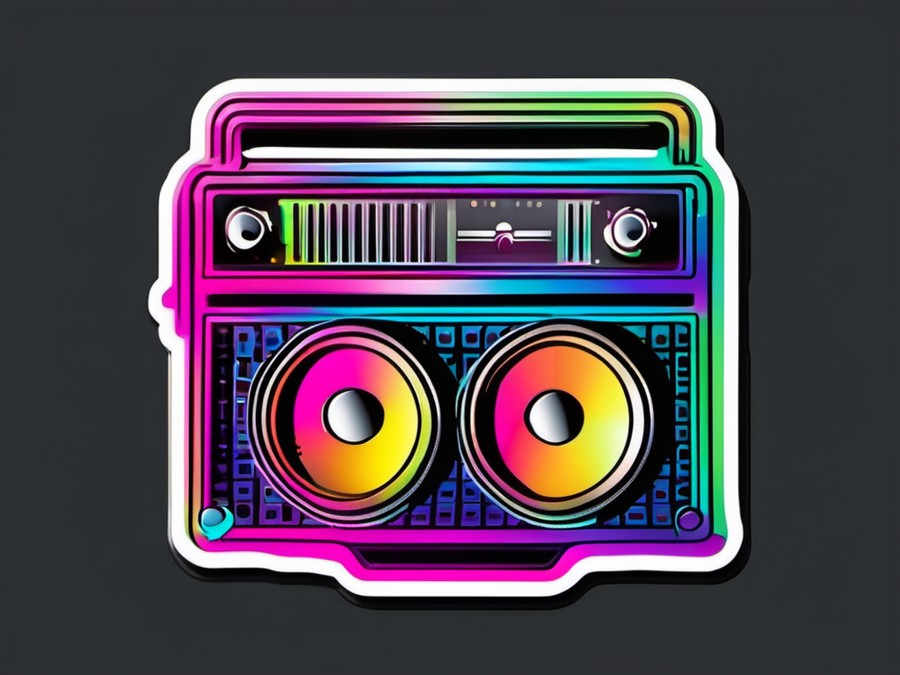· Charlotte Will · Vehicle Audio & Video Installation · 8 min read
What is an Amplifier and How Does It Enhance Car Audio?
Learn how an amplifier enhances car audio, types of amplifiers, benefits, installation tips, and real-world examples. Boost your car's sound quality and volume with the right amplifier setup.

Ever wondered what makes your car audio sound so much better after adding an amplifier? An amplifier is a key component in any car audio system, responsible for boosting the electrical signal from your music source to a level that can drive your speakers effectively. But how exactly does it enhance your car audio experience? Let’s dive in and explore the ins and outs of amplifiers, their benefits, installation tips, and more.
Understanding Amplifiers in Car Audio
What is an Amplifier?
At its core, an amplifier is a device that increases the power of an electrical signal. In car audio, this means taking the weak signal from your source—be it a radio, USB port, or smartphone—and amplifying it to a level that your speakers can use to produce sound. Without an amplifier, your music would be barely audible, no matter how high you crank up the volume.
Types of Car Audio Amplifiers
Amplifiers come in various classes, each with its unique characteristics. Understanding these types can help you choose the best one for your car audio setup:
- Class A/B: Balances power efficiency and sound quality, making it a popular choice for car audio.
- Class D: Highly efficient with minimal heat output, perfect for systems where space is a concern.
- Monoblock: Designed specifically to power subwoofers, delivering powerful bass.
For more details on amplifier classes, check out our article What is Car Audio Amplifier Class and Which One Is Best for You?.
How Amplifiers Work
An amplifier works by taking the small electrical signals from your music source and using them to control a more powerful signal. This process involves several stages: preamplifier, power amplifier, and output stage. Each stage boosts the signal until it’s strong enough to drive your speakers effectively.
The Role of an Amplifier in Car Audio Systems
Powering Your Speakers
One of the primary roles of an amplifier is to provide adequate power to your speakers. Power is crucial for louder volumes and better dynamics in your music. A good amplifier ensures that your speakers receive the right amount of power, preventing distortion and maintaining clarity.
Improving Sound Quality
Sound quality isn’t just about volume; it also encompasses clarity and detail. A high-quality amplifier can significantly enhance the sound quality of your car audio system by reducing noise and distortion. This results in a cleaner, more enjoyable listening experience.
Enhancing Bass Performance
Bass lovers know the struggle of weak bass from factory systems. An amplifier can dramatically improve bass performance, especially when paired with a subwoofer. By providing the necessary power, an amplifier allows your bass to be deeper and more impactful.
For a deeper dive into boosting low frequencies, check out our article What is a Marine Subwoofer and How Does It Enhance Your Boat Audio?.
Benefits of Using an Amplifier for Car Audio
Increased Volume Output
Volume output is one of the most noticeable benefits of using an amplifier. With more power, you can crank up the volume without compromising on sound quality. This is particularly useful for those who love to enjoy their music at higher volumes.
Better Sound Quality
A good amplifier doesn’t just make your music louder; it also improves the sound quality. By reducing noise and distortion, an amplifier ensures that you hear every detail in your music. This is crucial for a more immersive listening experience.
Reduced Speaker Strain
Speakers can only handle so much power before they start to strain or even fail. An amplifier helps by providing clean, powerful signals that your speakers can handle efficiently. This prolongs the life of your speakers and ensures they stay in good condition for longer.
Choosing the Right Amplifier for Your Car Audio System
Determining Power Requirements
Before choosing an amplifier, you need to determine the power requirements of your system. This involves calculating the total wattage needed to drive all your speakers effectively. Consider both RMS (Root Mean Square) power, which indicates the continuous power output, and peak power, which is the maximum power for short durations.
Matching Amplifier to Speakers
Once you know the power requirements, it’s essential to match your amplifier to your speakers. Impedance is a critical factor here—most car audio systems use 4-ohm speakers, but some may have different specs. Ensure your amplifier matches the impedance of your speakers for optimal performance.
Considering Amplifier Features
Modern amplifiers come with a range of features that can enhance your sound experience. These include built-in crossovers for better control over different frequency ranges, EQ settings to fine-tune the sound to your liking, and even Bluetooth connectivity for wireless music streaming. For more on Bluetooth FM transmitters compatible with modern car audio systems, check out our article What is the best Bluetooth FM transmitter compatible with modern car audio systems?.
Installation Tips for Car Audio Amplifiers
Wiring and Grounding
Proper wiring is crucial for the safe and effective operation of your amplifier. Follow the manufacturer’s guidelines to ensure that all connections are secure and correctly placed. Grounding is particularly important—a poor ground can lead to humming or other interference issues.
Placement Considerations
The location of your amplifier can affect its performance and the overall sound quality. Ideally, place the amplifier as close to your speakers as possible to minimize signal loss. Additionally, ensure it’s in a well-ventilated area to prevent overheating.
Troubleshooting Common Issues
Even the best installations can face issues. Troubleshooting common problems is essential for maintaining your system’s performance. If you experience distortion, check the amplifier settings and speaker connections. For humming or noise issues, ensure all grounding is proper and that there are no loose wires.
Real-World Examples of Amplifier Use
Upgrading a Stock System
If you’re looking to upgrade your factory system, an amplifier can make a significant difference. Transforming stock systems with an aftermarket amplifier can provide better volume, clarity, and overall sound quality. This upgrade not only improves your listening experience but can also add value to your vehicle.
Building a Custom Sound System
For those who want a tailored audio experience, building a custom sound system is the way to go. Choosing the right amplifier is a pivotal step in creating a system that caters to your specific preferences and needs. Whether you’re into crisp highs or powerful bass, the right amplifier can help you achieve your ideal sound.
Competition and Show Cars
In the world of car audio competitions, amplifiers play a critical role. Competition and show cars often feature high-end amplifiers that push the limits of sound quality and volume. These systems are meticulously designed to impress judges and spectators alike, showcasing the full potential of car audio capabilities.
Frequently Asked Questions About Car Audio Amplifiers
Do I Need an Amplifier for My Car Audio?
The need for an amplifier depends on your specific audio goals. If you’re satisfied with the stock system or only need a basic upgrade, a good head unit might suffice. However, if you want better volume, clarity, or powerful bass, an amplifier is a must-have.
Can an Amplifier Damage My Car’s Electrical System?
A properly installed amplifier should not damage your car’s electrical system. Ensure that you use the correct wiring and grounding methods, and consider adding a capacitor to stabilize power output. Always follow the manufacturer’s guidelines for safe installation.
What Happens if I Use the Wrong Amplifier for My Speakers?
Using an incorrectly matched amplifier can result in several issues. Overpowering your speakers can cause distortion and even damage them over time. Conversely, underpowering your speakers can lead to weak volume and poor performance. It’s essential to match the amplifier’s power output with your speakers’ wattage and impedance.
How Can I Tell if My Amplifier Needs Replacement?
There are several signs that indicate your amplifier may need replacement. These include distorted sound, loss of power, humming or other noises, and physical damage to the unit. Regular maintenance and proper care can extend the lifespan of your amplifier.
Are There Legal Limits to Car Audio Volume?
The legality of car audio volume varies by location. Noise regulations can limit how loud you can play your music without facing penalties or disturbing the peace. It’s essential to be aware of local laws and considerate of your surroundings when enjoying loud music.
Conclusion
An amplifier is more than just a device to make your car audio louder; it’s a key component that significantly enhances the overall sound quality and performance of your system. By understanding the types of amplifiers, their benefits, and proper installation techniques, you can transform your car audio experience. Whether you’re looking to upgrade a stock system or build a custom sound setup, the right amplifier can make all the difference.
FAQs:
Q: How much power does my car audio system need?
- A: The power requirements depend on your speakers and personal preferences. Calculate the total wattage by considering the RMS power of all your speakers and choosing an amplifier that matches or exceeds this value.
Q: Can I install an amplifier myself?
- A: While it’s possible to install an amplifier yourself, proper knowledge and tools are essential. If you’re not confident in your skills, consider professional installation to ensure safety and optimal performance.
Q: Will an amplifier improve my car’s resale value?
- A: A high-quality sound system can add value to your vehicle, making it more attractive to potential buyers. However, ensure that the upgrades are done professionally and match the car’s overall condition.
Q: How do I balance bass and treble with an amplifier?
- A: Balancing bass and treble involves using the EQ settings on your amplifier. Adjust the low, mid, and high frequencies to achieve the desired sound. Sometimes, additional components like crossovers can help in fine-tuning the balance.
Q: What are the signs that my amplifier needs replacement?
- A: Common signs include distorted sound, loss of power, humming or other noises, and physical damage to the unit. If you notice any of these issues, it may be time to replace your amplifier.




